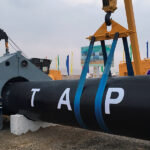Introduction:
Xinjiang, the vast autonomous region in northwest China, serves as a pivotal gateway to the Silk Road Economic Belt, connecting China with Central Asia, Europe, and beyond. Recently, a seminar focusing on the economic potentials of the Silk Road partner countries took place in Xinjiang. This 21 countries Participants had the opportunity to explore various facets of Xinjiang’s economic landscape, from its comprehensive bonded zones to its cultural landmarks. This article aims to provide insights into the experiences and discoveries made during this enlightening journey.
Exploring Economic Zones:
According to the Agenda the seminar commenced with a visit to the Kashi Comprehensive Bonded Zone Export Commodity Exhibition and Trading Center. This zone exemplifies Xinjiang’s commitment to facilitating international trade and investment. Participants witnessed firsthand the bustling trade activities and the diverse array of goods flowing through the region, reflecting Xinjiang’s significance as a trading hub.
Venturing into the International Mail Exchange Bureau, attendees gained insights into Xinjiang’s role in facilitating global commerce. The bureau’s operations underscored the region’s efficiency in handling international logistics and its crucial role in connecting businesses across continents.
Healthcare and Education:
A highlight of the seminar was the visit to the Second People’s Hospital of Kashi Prefecture, where delegates witnessed the region’s advancements in healthcare infrastructure and services. The hospital’s modern facilities and skilled medical professionals underscored Xinjiang’s commitment to providing quality healthcare to its residents and visitors alike.
In addition to healthcare, participants explored educational initiatives in Xinjiang, visiting the Second Kindergarten of Korla City. The kindergarten’s innovative educational approach emphasized cultural inclusivity and early childhood development, reflecting Xinjiang’s efforts to promote harmony and understanding among its diverse ethnic communities.
Community Engagement and Innovation:
The seminar provided opportunities for participants to engage with local communities, such as the visit to the Tuanjie Residential Community, also known as the Pomegranate Seed Band. Here, delegates witnessed the vibrant cultural traditions and communal spirit that define Xinjiang’s social fabric.
Delving into rural development, the visit to Wuxiatierreke Village showcased Xinjiang’s efforts to harness technology and innovation in agriculture. Participants learned about sustainable farming practices and the role of technology farms in enhancing agricultural productivity and rural livelihoods.
Harnessing the Power of Technology:
Xinjiang’s embrace of technology was further evident during visits to the E-commerce live broadcast base in Yuli County and the Photovoltaic Industrial Park. These initiatives highlighted Xinjiang’s strides in leveraging digital platforms and renewable energy solutions to drive economic growth and sustainability.
Promoting Textile Industry:
The delegation also visited Lihua Textile Co., Ltd., gaining insights into Xinjiang’s textile industry, renowned for its quality products and innovative manufacturing processes. The company’s commitment to sustainability and product excellence showcased Xinjiang’s potential as a global textile powerhouse.
Cultural Immersion:
Amidst the economic exploration, participants immersed themselves in Xinjiang’s rich cultural heritage. The performance of the Xinjiang Ethnic Orchestra captivated attendees with its mesmerizing melodies and vibrant rhythms, offering a glimpse into the region’s diverse musical traditions.
The journey culminated with visits to cultural landmarks such as the Xinjiang International Grand Bazaar and the Xinjiang Uygur Autonomous Region Museum. These sites celebrated Xinjiang’s multicultural identity and served as reminders of its historical significance along the ancient Silk Road.
Combating Terrorism and Promoting Stability:
An integral part of the seminar was an exhibition on combating terrorism in Xinjiang. Participants gained insights into Xinjiang’s comprehensive approach to maintaining peace and stability, emphasizing social cohesion, economic development, and the protection of human rights.
Conclusion:
The seminar in Xinjiang provided a comprehensive overview of the region’s economic potential, cultural richness, and commitment to innovation and inclusivity. Through insightful visits to economic zones, healthcare and educational institutions, rural communities, and cultural landmarks, participants gained a deeper understanding of Xinjiang’s pivotal role in the Silk Road Economic Belt and its contributions to global connectivity and cooperation.
In totally I think such Chinese policy is very important for people to people exchange and crucial work for a friendly world which we every one hope of it.













